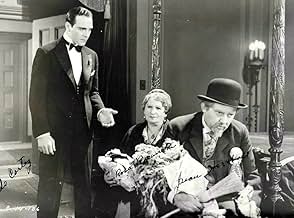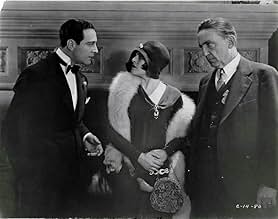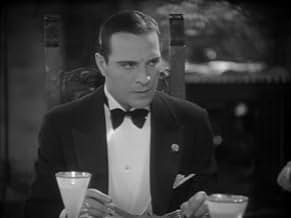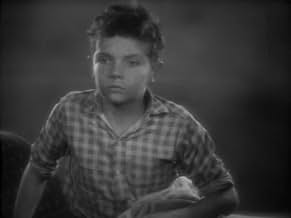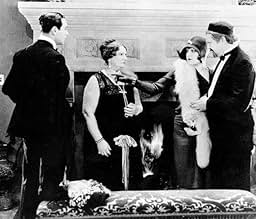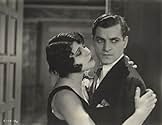VALUTAZIONE IMDb
6,3/10
413
LA TUA VALUTAZIONE
Aggiungi una trama nella tua linguaSoap-opera about a social-climbing Jewish man and his old-world parents who are heartbroken by his rejection of them.Soap-opera about a social-climbing Jewish man and his old-world parents who are heartbroken by his rejection of them.Soap-opera about a social-climbing Jewish man and his old-world parents who are heartbroken by his rejection of them.
- Regia
- Sceneggiatura
- Star
Syd Crossley
- Goldfish's Butler
- (as Sid Crossley)
Joe Bordeaux
- Crook
- (non citato nei titoli originali)
Ferike Boros
- Delancey Street Woman
- (non citato nei titoli originali)
Clarence Burton
- Police Desk Sergeant
- (non citato nei titoli originali)
Paul Ellis
- Crook
- (non citato nei titoli originali)
Ruth Feldman
- Market Woman
- (non citato nei titoli originali)
Otto Fries
- Tradesman
- (non citato nei titoli originali)
Julia Swayne Gordon
- Mrs. Striker
- (non citato nei titoli originali)
Donald Hall
- Minor Role
- (non citato nei titoli originali)
Leon Janney
- Eddie Lesser as a Boy
- (non citato nei titoli originali)
Julanne Johnston
- Irma Striker
- (non citato nei titoli originali)
Virginia Marshall
- Birdie Goldfish as a Girl
- (non citato nei titoli originali)
Recensioni in evidenza
Based on a play by Fannie Hurst, The Younger Generation might be Frank Capra's most personal film up to this point. We've had films that felt like he was just for hire (Submarine and both the Harry Langdon films) and films where he was saying what he wanted to say (pretty much everything else to one degree or another), but this almost feels somewhat autobiographical. Sure, Capra was Italian and not Jewish, but it's about the immigrant experience and the difference between people who came to America as adults and those who were raised on its streets. Well, Capra was raised on those streets and had parents who moved to America as adults (he emigrated from Italy with his family when he was five years old), so this just feels like it should be personal.
The Goldfish family is living on the East Side of New York City while the mother Tilda (Rosa Rosanova) tries to make a living, the father Julius (Jean Hersholt) makes jokes with his friends on the street corner, little Birdie (Lina Basquette as an adult) makes friends with the boy across the way Eddie (Rex Lease as an adult), and the boy Maurice (Ricardo Cortez as an adult) with a real drive for business. When Maruice gets into a fight with Eddie, Maruice accidentally hits the oil lamp above the stove, sending the apartment up in a blaze, but he's not put out by it. He'll make money from their leftover possessions, setting the stage for him to build an import art empire roughly fifteen years later.
The core of the film's story is the implied conflict between the younger and older generations, but it's not quite the simplistic battle of the ages that that implies. Instead, it's a conflict of visions that mostly manifests as the dramatic butting of heads between Maurice and Birdie since the brother is obsessed with status and position in his new life while Birdie has kept up her relationship with Eddie to the point that she wants to marry him.
It's interesting to see the big guy versus little guy dynamic manifest here within a family unit with Maurice becoming the big guy, losing sight of his own humanity, and pushing away everyone else while controlling them with his money, much to the chagrin of everyone else in the family, in particular Julius and Birdie who act like partners in crime. Things turn when Eddie, in a fit of desperation to be good enough for Birdie in Maurice's eyes (I think, this is thin and needs more, to be honest), he helps some local hoods knock off a jewelry story by riding up on the street and singing a song to offer up a distraction. It's a scandal that gets quickly found out, leading to Birdie rededicating her love to him by marrying him and Maurice kicking her out while preventing his parents from knowing that he'd done it.
Now, I should comment on the fact that this is Capra's first sound film. Well, partial sound film. I don't know the background for sure, but it seems like it was at least mostly filmed, The Jazz Singer came out, and they went back to film four scenes with the new sound technology. The transition from silent to sound is the most interesting period in film, in my opinion, and one measure of a director's ability to adapt to changing circumstances. John Ford failed it with The Black Watch while Ernst Lubitsch passed with flying colors in The Love Parade. Capra falls more towards the Lubitsch side, though being only a part talkie there are limits to what one can say on that front. I just want to note that the four scenes are dialogue heavy scenes (similar to Hitchcock's first effort at sound, Blackmail), but he films it like any competent dialogue scene from the later pre-Code period would be filmed, complete with dialogue cutting into shots with people who aren't talking, helping to blend shots confidently. It's surprisingly well done stuff, and it happens to be in a pretty good story to boot. In terms of part-talkies, it recalled the confident way that William Wyler approached it in The Love Trap.
Anyway, the film speeds towards its conclusion after the passage of two years with Eddie in jail, Birdie having his child, and Julius reaches a low point in his health without any contact from his beloved daughter because Maurice is tearing up her letters all leading to the kind of warm-hearted resolution that Capra was known for, though this is tinged with some pointed sadness. It's not entirely happy, Maurice's antagonism towards Birdie gets somewhat resolved but he can't be happy, not even with his money. And that points to what has quickly formed to be Capra's running theme: the little guys prioritize things that the big guys don't, but there are things to be learned across that gap.
It's not a great film, perhaps more interesting for Capra's first foray into sound more than anything else, but it's a solidly entertaining little melodrama that never elevates the material but executes it with some skill.
The Goldfish family is living on the East Side of New York City while the mother Tilda (Rosa Rosanova) tries to make a living, the father Julius (Jean Hersholt) makes jokes with his friends on the street corner, little Birdie (Lina Basquette as an adult) makes friends with the boy across the way Eddie (Rex Lease as an adult), and the boy Maurice (Ricardo Cortez as an adult) with a real drive for business. When Maruice gets into a fight with Eddie, Maruice accidentally hits the oil lamp above the stove, sending the apartment up in a blaze, but he's not put out by it. He'll make money from their leftover possessions, setting the stage for him to build an import art empire roughly fifteen years later.
The core of the film's story is the implied conflict between the younger and older generations, but it's not quite the simplistic battle of the ages that that implies. Instead, it's a conflict of visions that mostly manifests as the dramatic butting of heads between Maurice and Birdie since the brother is obsessed with status and position in his new life while Birdie has kept up her relationship with Eddie to the point that she wants to marry him.
It's interesting to see the big guy versus little guy dynamic manifest here within a family unit with Maurice becoming the big guy, losing sight of his own humanity, and pushing away everyone else while controlling them with his money, much to the chagrin of everyone else in the family, in particular Julius and Birdie who act like partners in crime. Things turn when Eddie, in a fit of desperation to be good enough for Birdie in Maurice's eyes (I think, this is thin and needs more, to be honest), he helps some local hoods knock off a jewelry story by riding up on the street and singing a song to offer up a distraction. It's a scandal that gets quickly found out, leading to Birdie rededicating her love to him by marrying him and Maurice kicking her out while preventing his parents from knowing that he'd done it.
Now, I should comment on the fact that this is Capra's first sound film. Well, partial sound film. I don't know the background for sure, but it seems like it was at least mostly filmed, The Jazz Singer came out, and they went back to film four scenes with the new sound technology. The transition from silent to sound is the most interesting period in film, in my opinion, and one measure of a director's ability to adapt to changing circumstances. John Ford failed it with The Black Watch while Ernst Lubitsch passed with flying colors in The Love Parade. Capra falls more towards the Lubitsch side, though being only a part talkie there are limits to what one can say on that front. I just want to note that the four scenes are dialogue heavy scenes (similar to Hitchcock's first effort at sound, Blackmail), but he films it like any competent dialogue scene from the later pre-Code period would be filmed, complete with dialogue cutting into shots with people who aren't talking, helping to blend shots confidently. It's surprisingly well done stuff, and it happens to be in a pretty good story to boot. In terms of part-talkies, it recalled the confident way that William Wyler approached it in The Love Trap.
Anyway, the film speeds towards its conclusion after the passage of two years with Eddie in jail, Birdie having his child, and Julius reaches a low point in his health without any contact from his beloved daughter because Maurice is tearing up her letters all leading to the kind of warm-hearted resolution that Capra was known for, though this is tinged with some pointed sadness. It's not entirely happy, Maurice's antagonism towards Birdie gets somewhat resolved but he can't be happy, not even with his money. And that points to what has quickly formed to be Capra's running theme: the little guys prioritize things that the big guys don't, but there are things to be learned across that gap.
It's not a great film, perhaps more interesting for Capra's first foray into sound more than anything else, but it's a solidly entertaining little melodrama that never elevates the material but executes it with some skill.
Morris Goldfish grew up on New York's poor Lower East Side with his Jewish family. His father is a fun loving guy with all his friends but they don't have much money. The kids accidentally burn down their home but Morris fights to save their valuables. He uses the same tenacity to be a successful business and moves the family to rich Fifth Avenue. His father is tired of the stuffy social climbing from Morris and not happy being no longer the head of the household while mother and sister Birdie are overjoyed with their rise in status. Morris changes him name from Goldfish to Fish.
This is my earliest Frank Capra film. It is silent except for some synchronized music and some talking sequences. It's always fascinating to see incremental advancements in technology. This mix of silent and sound is a real platypus. It actually affects the tone and the style of the movie. Of course, all of that is beyond the filmmaker's intention. It's just the sense from a modern viewer.
The father son relationship is pure Capra. It's a familiar Capra theme of money don't buy you happiness. I love the path that the movie is going on until Birdie and her boyfriend become the nexus of the plot in the middle. It's too much. Quite frankly, Morris can simply kick Birdie out for marrying poor. The whole crime is contrived. The movie does go back to the father son relationship which is a good thing. The big climatic moment in the lobby is both effective and flawed. There needs to be something more obvious for Morris to deny his parents. In the movie, he's already suppose to introduce his parents to the upper crust guests during the dinner. It needs an extra push. It needs his guest to say something derogatory about them being poor. It's a great moment but it needs a better reason for Morris. Overall, the movie gets a bit too melodramatic. This is a great film for Capra fans and they would be very familiar with the theme.
This is my earliest Frank Capra film. It is silent except for some synchronized music and some talking sequences. It's always fascinating to see incremental advancements in technology. This mix of silent and sound is a real platypus. It actually affects the tone and the style of the movie. Of course, all of that is beyond the filmmaker's intention. It's just the sense from a modern viewer.
The father son relationship is pure Capra. It's a familiar Capra theme of money don't buy you happiness. I love the path that the movie is going on until Birdie and her boyfriend become the nexus of the plot in the middle. It's too much. Quite frankly, Morris can simply kick Birdie out for marrying poor. The whole crime is contrived. The movie does go back to the father son relationship which is a good thing. The big climatic moment in the lobby is both effective and flawed. There needs to be something more obvious for Morris to deny his parents. In the movie, he's already suppose to introduce his parents to the upper crust guests during the dinner. It needs an extra push. It needs his guest to say something derogatory about them being poor. It's a great moment but it needs a better reason for Morris. Overall, the movie gets a bit too melodramatic. This is a great film for Capra fans and they would be very familiar with the theme.
THE YOUNGER GENERATION (1929) starts as a silent film, complete with synchronized audio track (for music and sound effects), but eventually lapses into an early talkie with spoken dialogue. The scenes alternate between silent and sound throughout the duration of the film. It's an interesting curiosity for film history buffs, as the movie was released at seemingly the exact moment when Hollywood transitioned from silent cinema to talking pictures.
The story is nothing groundbreaking. The Goldfish family rises from the cultural melting pot of the Lower East Side to Fifth Avenue high society, thanks to son Morris (Ricardo Cortez), a shrewd businessman who grows the family furniture store into a successful antiques emporium.
Morris rules his family with an iron fist, forbidding his sister Birdie (Lina Basquette) from seeing her childhood sweetheart from the old neighborhood. The ritzy Fifth Avenue lifestyle stifles Papa Goldfish (Jean Hersholt), who misses his friends from Delancey Street. Morris even legally changes his surname from Goldfish to the less-Jewish "Fish" in order to distance himself from his family's ethnic heritage.
As an early talkie, many of the line readings are a bit awkward, though Basquette handles the dialogue better than the rest of the cast (even Cortez). But even with her naturalistic delivery, the lines are often written awkwardly.
Still, the human drama pulls at your heart. Financial success brings misery to the Goldfish family. Morris is a real jerk, and everyone else in his house suffers as he climbs the social ladder. Cut off from her family, Birdie stitches together a happy little life with her songwriter husband, while Morris obsesses over his social position and leads an ultimately empty existence. Lina Basquette is pretty cute as Birdie and Jean Hersholt's performance is heartbreaking.
The story is nothing groundbreaking. The Goldfish family rises from the cultural melting pot of the Lower East Side to Fifth Avenue high society, thanks to son Morris (Ricardo Cortez), a shrewd businessman who grows the family furniture store into a successful antiques emporium.
Morris rules his family with an iron fist, forbidding his sister Birdie (Lina Basquette) from seeing her childhood sweetheart from the old neighborhood. The ritzy Fifth Avenue lifestyle stifles Papa Goldfish (Jean Hersholt), who misses his friends from Delancey Street. Morris even legally changes his surname from Goldfish to the less-Jewish "Fish" in order to distance himself from his family's ethnic heritage.
As an early talkie, many of the line readings are a bit awkward, though Basquette handles the dialogue better than the rest of the cast (even Cortez). But even with her naturalistic delivery, the lines are often written awkwardly.
Still, the human drama pulls at your heart. Financial success brings misery to the Goldfish family. Morris is a real jerk, and everyone else in his house suffers as he climbs the social ladder. Cut off from her family, Birdie stitches together a happy little life with her songwriter husband, while Morris obsesses over his social position and leads an ultimately empty existence. Lina Basquette is pretty cute as Birdie and Jean Hersholt's performance is heartbreaking.
This film is one of the rare surviving goat gland films, that is, it's a part talkie. The film was made in 1929, and although more financially or technically advanced studios had graduated to all-talking pictures by now, poverty row Columbia was just beginning to work with the new technology. As a result, the film is split rather oddly into silent and talking portions, and it goes back and forth between talking and silent throughout the picture. However, it is very well done in spite of this. They must have had some trouble with synchronization, because often the speaking portions will have the speaker turn his/her back to the camera so you can't see that the sound is out of sync. Also, there is a song performed at a distance in which you can clearly see that the singer's lips and the song are out of sync.
Enough about the poverty row qualifications. The film itself is an excellent Frank Capra work about a Jewish family in a poorer section of New York City. Don't expect the optimistic Capra of later years here, though. The film is surprisingly downbeat although the Capra themes of the importance of family and the evils of chasing riches for riches sake shine through.
The film opens with Julius Goldfish (Jean Hersholt) selling from his push-cart. Actually, he's loafing and talking with friends and ignoring the push-cart. His wife Tilda (Rosa Rosanova) scolds him about his loafing and says he'll never get ahead. Meanwhile their children do not get along with each other. Morris, their son, is always looking for ways to make money, even salvaging stuff from a burning building in order to have a fire sale. Birdie Goldfish (as an adult, Lina Basquette) and Eddie Lesser (as an adult, Rex Lease) are childhood sweethearts. Ma Goldfish is always building up Morris' industry and ingenuity, and Birdie is Pa Goldfish's pride and joy, although Ma and Pa love both children.
Time passes, and the adult Morris (Ricardo Cortez) builds up the push-cart into a thriving antique business and moves the entire family to Fifth Avenue, not so much because he wants his family with him, but because you feel he would be embarrassed to have it known that his family is living on the East Side. Morris even changes his name to Fish to leave his Jewish roots behind and be accepted in the gentile social circles of upper crust New York City. To this end he tries to control the lives of his parents and his grown sister, even shooting disapproving looks at his dad whenever he wears his prayer shawl. Eventually Morris turns his parents into museum pieces and pushes his sister out of the family when her marriage to Eddie embarrasses him socially. The end is bitter-sweet with a final scene that is hard to forget.
Highly recommended as a touching dawn of sound film and a showcase of Capra's talents during this technologically challenging era when so many others were making either stiffly acted static dramas or ludicrous musicals in this transitional year of all-talking pictures.
Enough about the poverty row qualifications. The film itself is an excellent Frank Capra work about a Jewish family in a poorer section of New York City. Don't expect the optimistic Capra of later years here, though. The film is surprisingly downbeat although the Capra themes of the importance of family and the evils of chasing riches for riches sake shine through.
The film opens with Julius Goldfish (Jean Hersholt) selling from his push-cart. Actually, he's loafing and talking with friends and ignoring the push-cart. His wife Tilda (Rosa Rosanova) scolds him about his loafing and says he'll never get ahead. Meanwhile their children do not get along with each other. Morris, their son, is always looking for ways to make money, even salvaging stuff from a burning building in order to have a fire sale. Birdie Goldfish (as an adult, Lina Basquette) and Eddie Lesser (as an adult, Rex Lease) are childhood sweethearts. Ma Goldfish is always building up Morris' industry and ingenuity, and Birdie is Pa Goldfish's pride and joy, although Ma and Pa love both children.
Time passes, and the adult Morris (Ricardo Cortez) builds up the push-cart into a thriving antique business and moves the entire family to Fifth Avenue, not so much because he wants his family with him, but because you feel he would be embarrassed to have it known that his family is living on the East Side. Morris even changes his name to Fish to leave his Jewish roots behind and be accepted in the gentile social circles of upper crust New York City. To this end he tries to control the lives of his parents and his grown sister, even shooting disapproving looks at his dad whenever he wears his prayer shawl. Eventually Morris turns his parents into museum pieces and pushes his sister out of the family when her marriage to Eddie embarrasses him socially. The end is bitter-sweet with a final scene that is hard to forget.
Highly recommended as a touching dawn of sound film and a showcase of Capra's talents during this technologically challenging era when so many others were making either stiffly acted static dramas or ludicrous musicals in this transitional year of all-talking pictures.
10mmipyle
Watched "The Younger Generation" (1929) with Jean Hersholt, Lina Basquette, Ricardo Cortez, Rosa Rosanova, Rex Lease, Syd Crossley, and others. Concerning a Jewish family from NYC's lower east side. Directed by Frank Capra, this is silent with three short talkie sequences and a music and sound effects overlay otherwise. Hersholt is content in his surroundings, and loves to joke and laugh and be merry with fellow street hawkers, while his wife, Rosanova, wishes to move up and out of the life they're in. Son Cortez is already hawking newspapers and making money at a very young age, set to rise out of this life and onto Fifth Avenue. His sister, Basquette, is the apple of her father's eye, and she is enamored of a young harmonica player, Lease. He wishes to become a song writer. Cortez and he are at odds from early childhood. As years pass, Cortez becomes ultra successful and moves, taking his family with him, up to Fifth Avenue and tremendous wealth. But the happiness that was seemingly inherent in most of the family is now barred by a steely front of money and vapid social status. Eventually, Cortez actually snubs his family, calling them foolish servants in front of invited wealthy acquaintances so that he won't have to admit that they're his parents. His parents are shattered. The scene is shattering! The final scene, after several circumstances with Lease and Basquette in-between, is also shattering. How Cortez is situated at the end is monumentally shattering.
This moral fable is brilliantly executed by all involved. For me, this was the best performance I've ever seen Cortez give. I was bothered near the beginning with some of Cortez' hand placements which reminded me too much of stage performing and less of film acting. Other than that, the other performances are nothing short of great. The film, though possibly not for everybody, especially if you're turned off by moral fables, is revelatory for the period. It will instantly remind many of "His People" (1925) with Rudolph Schildkraut if any are familiar with that silent; they're nearly the same story, and, curiously enough, Rosa Rosanova is in both films. The film's Jewish circumscription is felt through and through, and Capra has obviously purposely made that choice. The ethnic aura makes the film even more compelling. The prayer that Hersholt prays near the end is supremely moving in context, and the resulting events are the threading of the needle sewing the coming tapestry.
Simply outstanding! The print was also nearly perfect, and the sound was actually well done for 1929. The talkie sequences don't necessarily add anything special to the film, but must have been very satisfying to audiences when the film was released. The sequences don't seem to be like other goat-glanded films of the era, but the sound is used in conjunction with the rest of the film. The final sequence before the very end scene is sound. The end scene itself, which is profoundly silent, is tremendously moving because of its silence. Highly recommended!
This moral fable is brilliantly executed by all involved. For me, this was the best performance I've ever seen Cortez give. I was bothered near the beginning with some of Cortez' hand placements which reminded me too much of stage performing and less of film acting. Other than that, the other performances are nothing short of great. The film, though possibly not for everybody, especially if you're turned off by moral fables, is revelatory for the period. It will instantly remind many of "His People" (1925) with Rudolph Schildkraut if any are familiar with that silent; they're nearly the same story, and, curiously enough, Rosa Rosanova is in both films. The film's Jewish circumscription is felt through and through, and Capra has obviously purposely made that choice. The ethnic aura makes the film even more compelling. The prayer that Hersholt prays near the end is supremely moving in context, and the resulting events are the threading of the needle sewing the coming tapestry.
Simply outstanding! The print was also nearly perfect, and the sound was actually well done for 1929. The talkie sequences don't necessarily add anything special to the film, but must have been very satisfying to audiences when the film was released. The sequences don't seem to be like other goat-glanded films of the era, but the sound is used in conjunction with the rest of the film. The final sequence before the very end scene is sound. The end scene itself, which is profoundly silent, is tremendously moving because of its silence. Highly recommended!
Lo sapevi?
- QuizFirst part-dialog sound film for Columbia Pictures and director Frank Capra. Both wanted to make an all-talking film, but equipped sound stages were at a premium at the time.
- BlooperWhen Birdie tells Eddie (via intertitle) that his song has been sold for $1000, he excitedly mouths the words "Five thousand?"
- Citazioni
Title Card: New York's Lower East Side--a melting pot, where the younger generation struggles to free itself from the old-world ideas of its fathers.
- ConnessioniFeatured in Frank Capra's American Dream (1997)
I più visti
Accedi per valutare e creare un elenco di titoli salvati per ottenere consigli personalizzati
Dettagli
- Data di uscita
- Paese di origine
- Lingua
- Celebre anche come
- The Younger Generation
- Luoghi delle riprese
- Azienda produttrice
- Vedi altri crediti dell’azienda su IMDbPro
- Tempo di esecuzione1 ora 15 minuti
Contribuisci a questa pagina
Suggerisci una modifica o aggiungi i contenuti mancanti

Divario superiore
By what name was La nuova generazione (1929) officially released in India in English?
Rispondi
